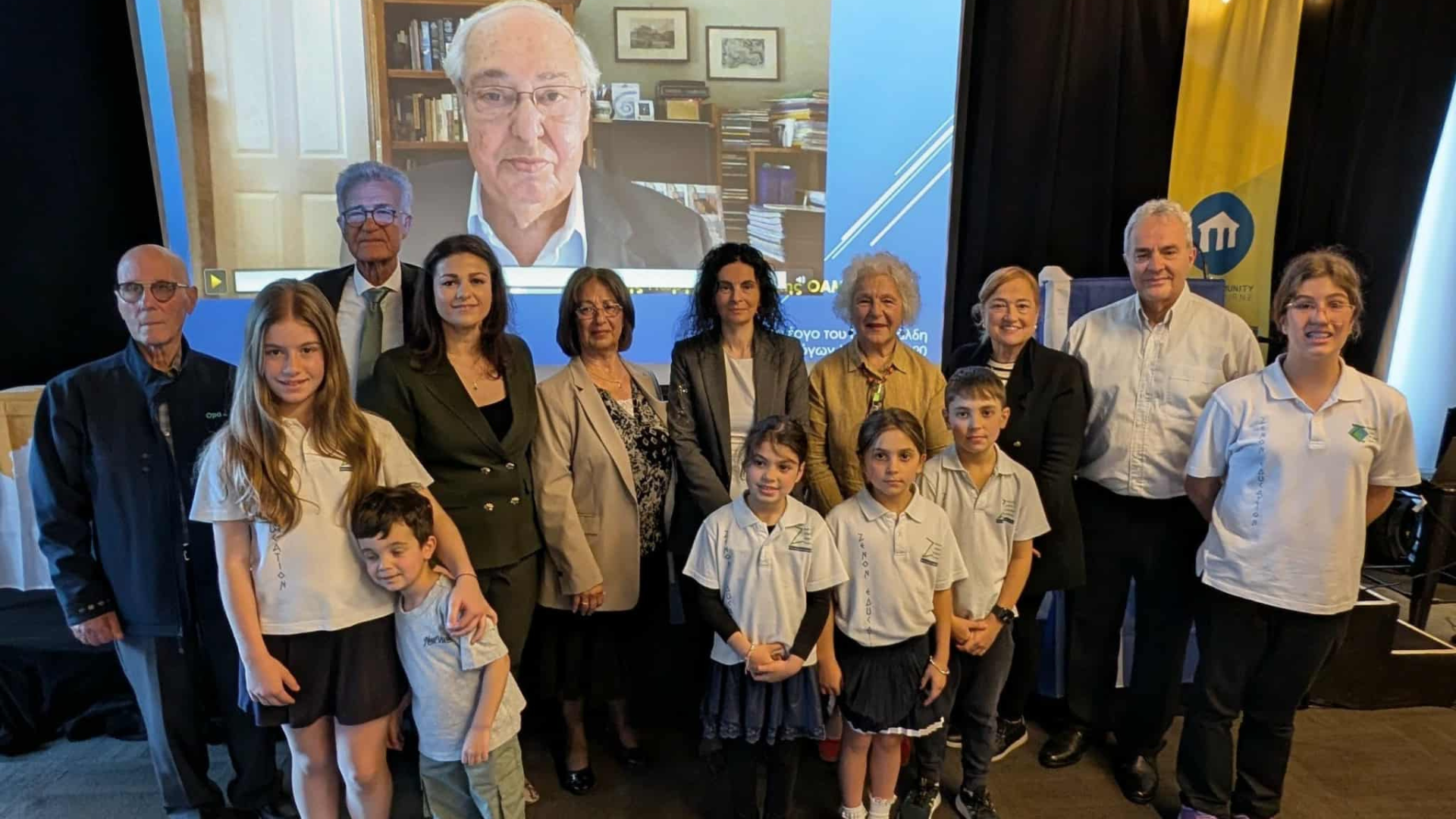The Greek-Australian Cultural League (GACL), in collaboration with the Thessaloniki Association “The White Tower,” hosted a moving commemoration, The Women of Asia Minor, at the Greek Centre on 14 September, National Remembrance Day for the Genocide of Asia Minor Greeks.
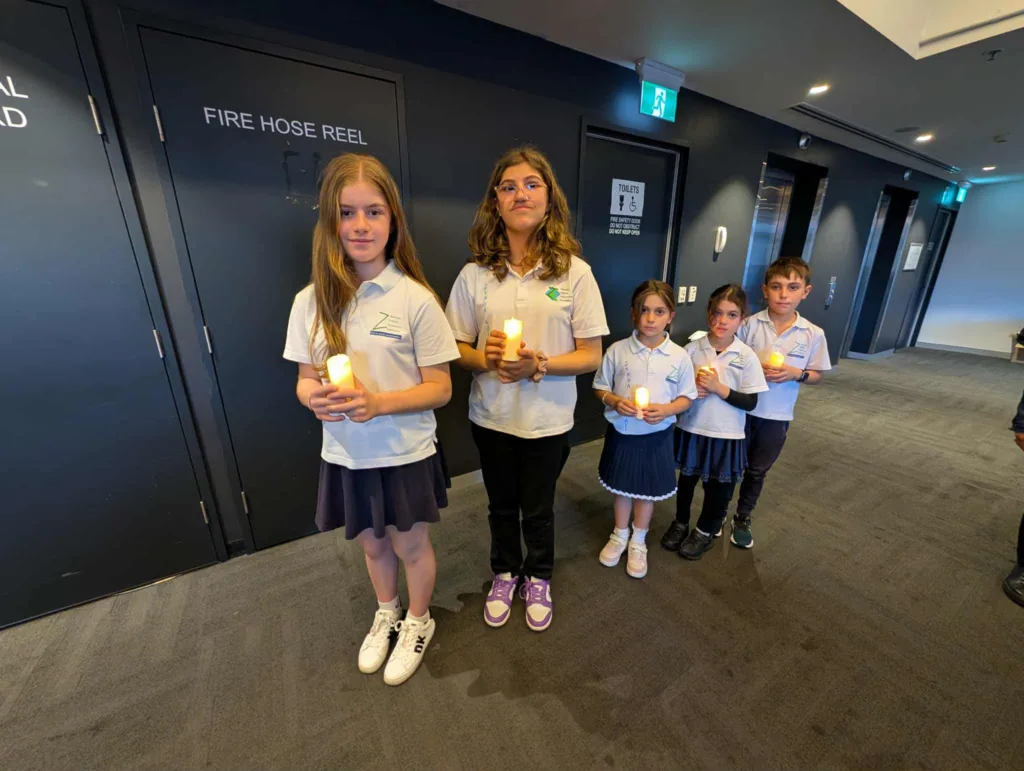
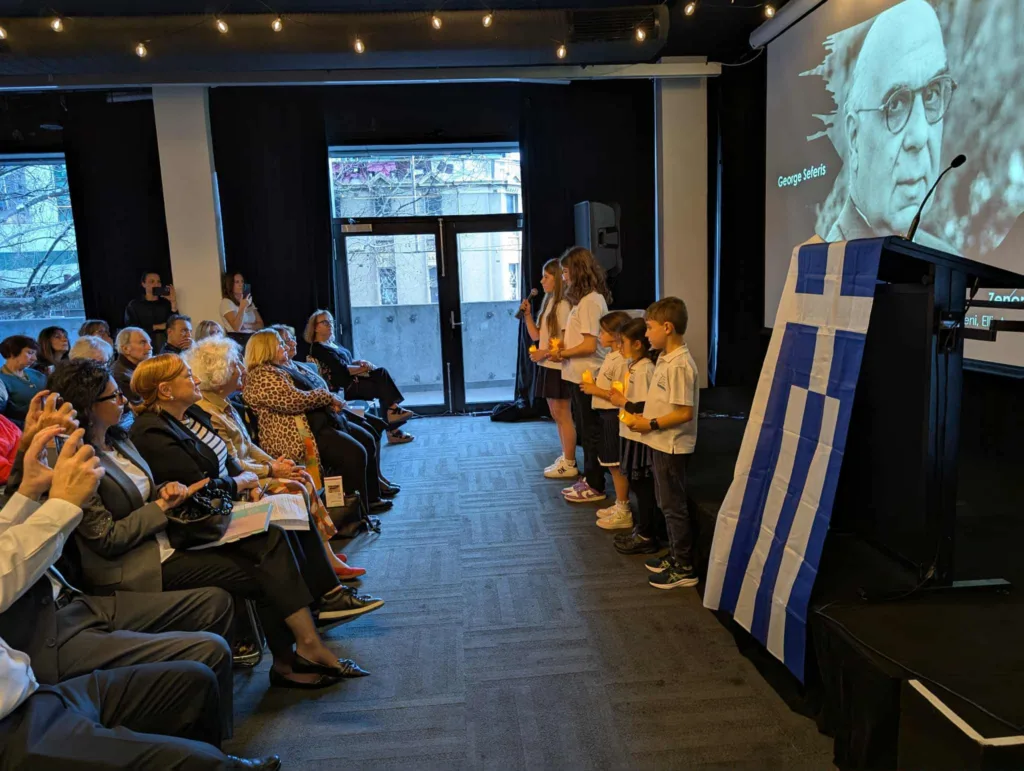
Established by the Greek Parliament in 1998, the day ensures Greeks worldwide honour the victims of 1922 while recognising the resilience of those who survived. This year’s Melbourne event placed women at the centre of memory: mothers, daughters, and grandmothers who carried the trauma of displacement yet became the backbone of refugee families.
The program began later than scheduled, as guests awaited the arrival of Consul General of Greece in Melbourne Dimitra Georgantzoglou. When she finally took the podium, her speech, deeply personal, proved worth the wait.
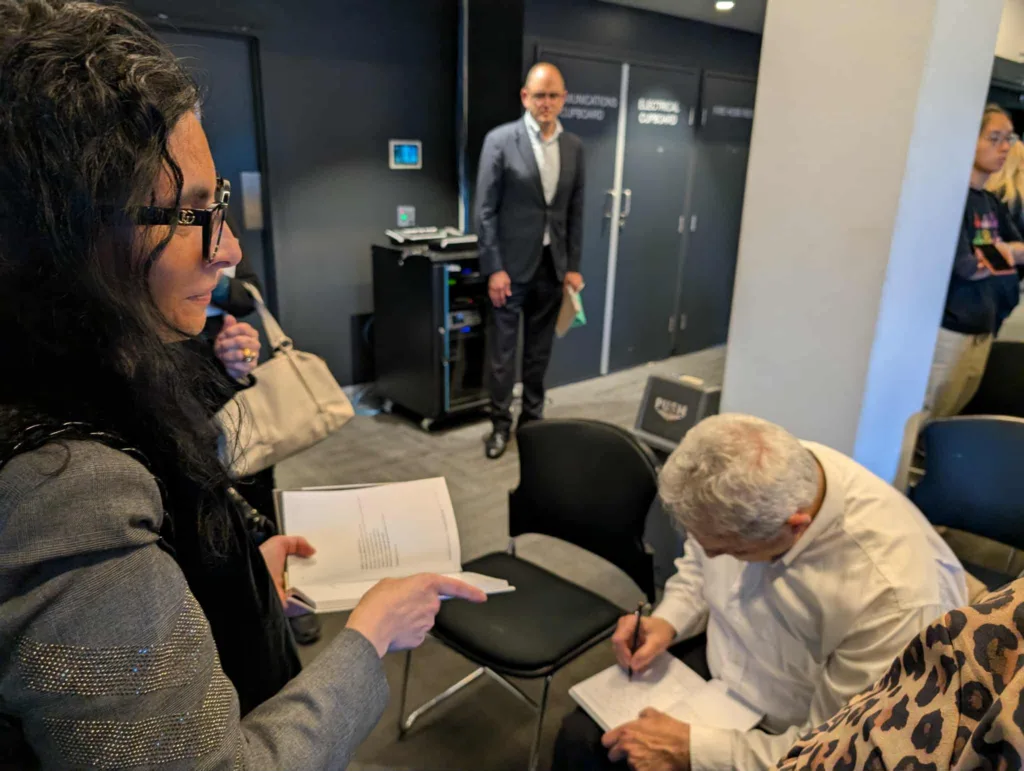
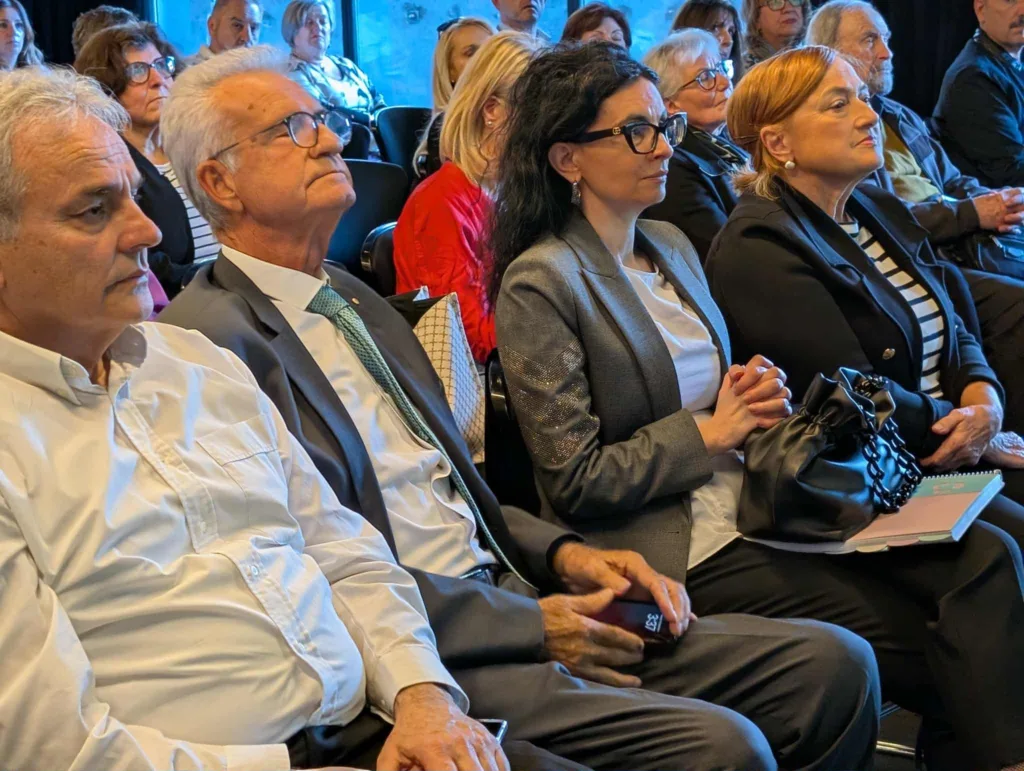
“The organisers asked me for a speech with a ‘documentary character,’” she said. “I feel special honour and emotion to be here to pay tribute to the women of Smyrna and Vourla.”
Drawing on her family’s refugee roots from Cappadocia and Pontos, Georgantzoglou recalled growing up in Nea Filadelfia, a suburb built by Asia Minor survivors. “I was surrounded by the first generation of refugees. Their stories were my material, my history.”
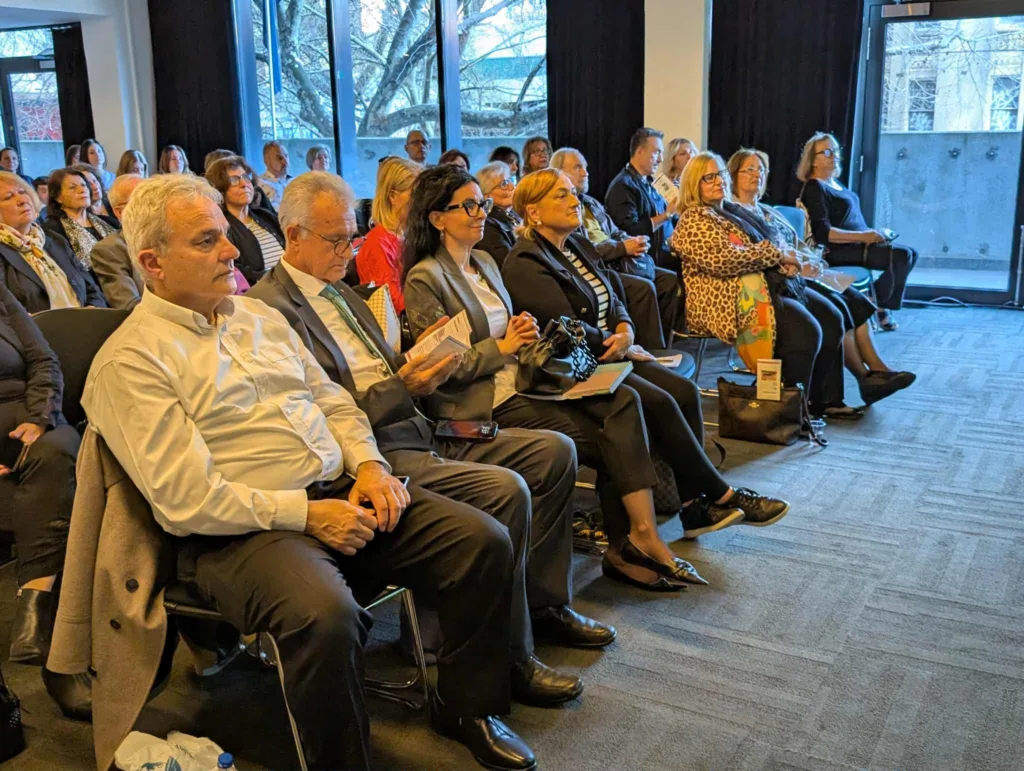
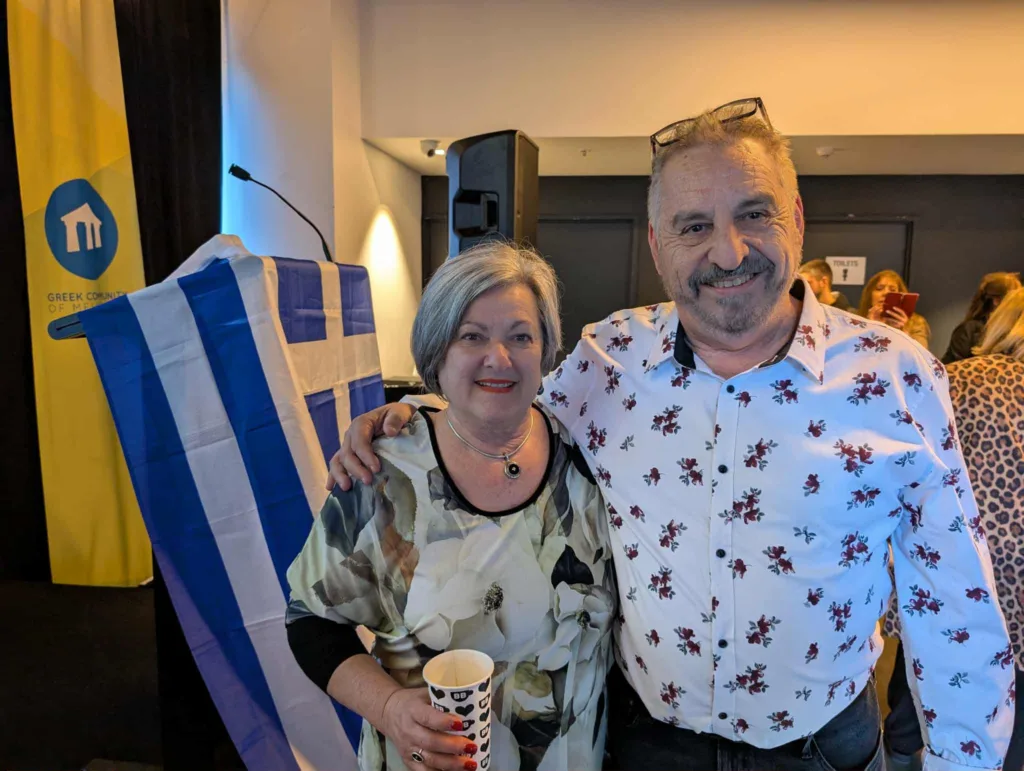
She paid tribute to Filio Haidemenou, a refugee from Vourla who lived to 107 and left behind heirlooms now preserved as historical artefacts. “She was a strong example of a woman of Asia Minor who contributed to the continuation of Greek culture. Her life was testimony.”
Her choice to speak in Greek was deliberate: “In a foreign language, the words would lose their emotional weight.”
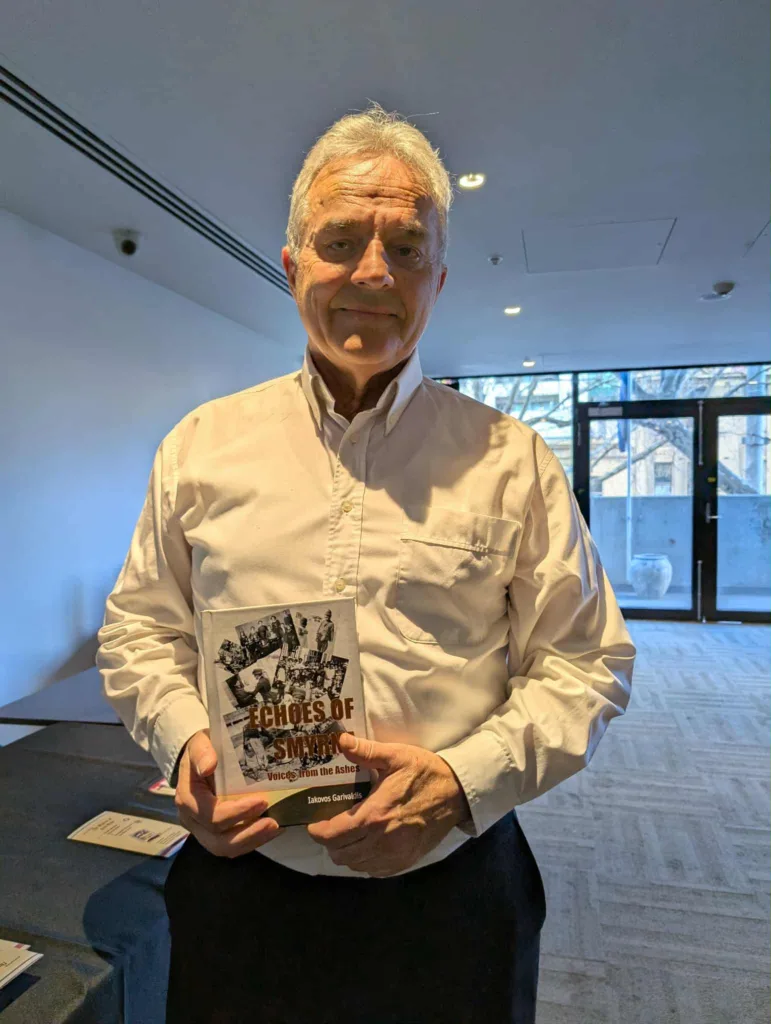
GACL president Cathy Alexopoulos reflected on the significance of Echoes of Smyrna: Voices from the Ashes, compiled by Iakovos Garivaldis.
“These stories are not fragments of the past,” she said. “They are the foundation of our collective identity and the thread that connects generations of the diaspora to their roots. The soil of Anatolia is stained with blood. The screams of despair still echo. We carry the responsibility to preserve this memory and pass it on.”
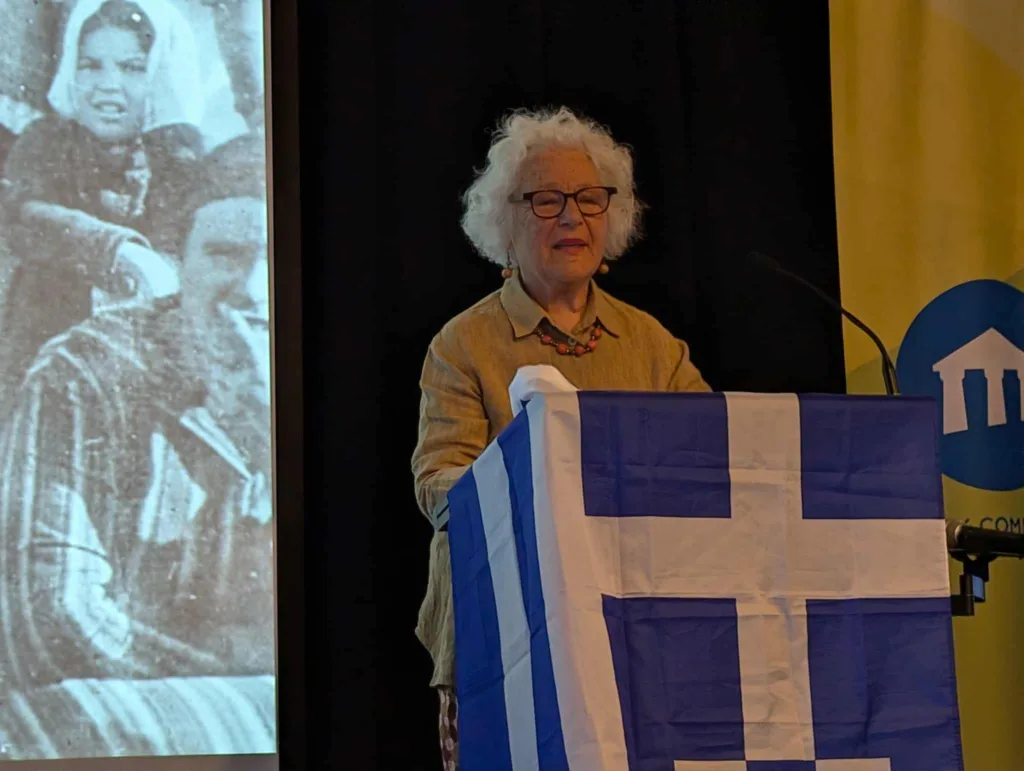
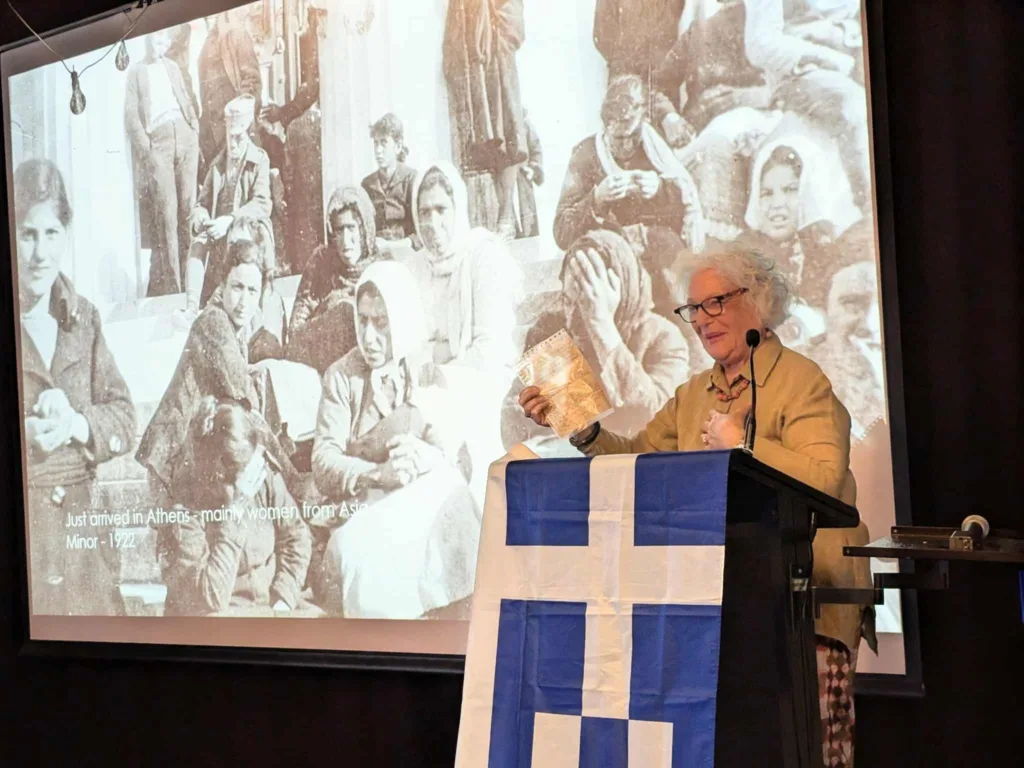
Alexopoulos also shared her family’s story, recalling her grandmother Olga Tsakiri and mother Elpida Hatziandreou, whose life spanned the Smyrna Catastrophe, migration, the Spanish Flu, cancer, COVID-19, and finally a peaceful passing in 2021. Their stories, she said, embodied the resilience of women who bore trauma while building new lives.
Eleni Zalocosta, who officially launched the book, highlighted the heroism of Asia Minor women: “They became the backbone of their families. Despite alienation in new homelands, they overcame adversity with dignity, strength, and prowess. They paved the way for their families’ survival and success.”
With 36 contributions from descendants of refugees, Echoes of Smyrna became a touchstone of the commemoration. As Garivaldis notes: “Beyond the unimaginable loss, these stories reveal a history that refuses to be silenced.”

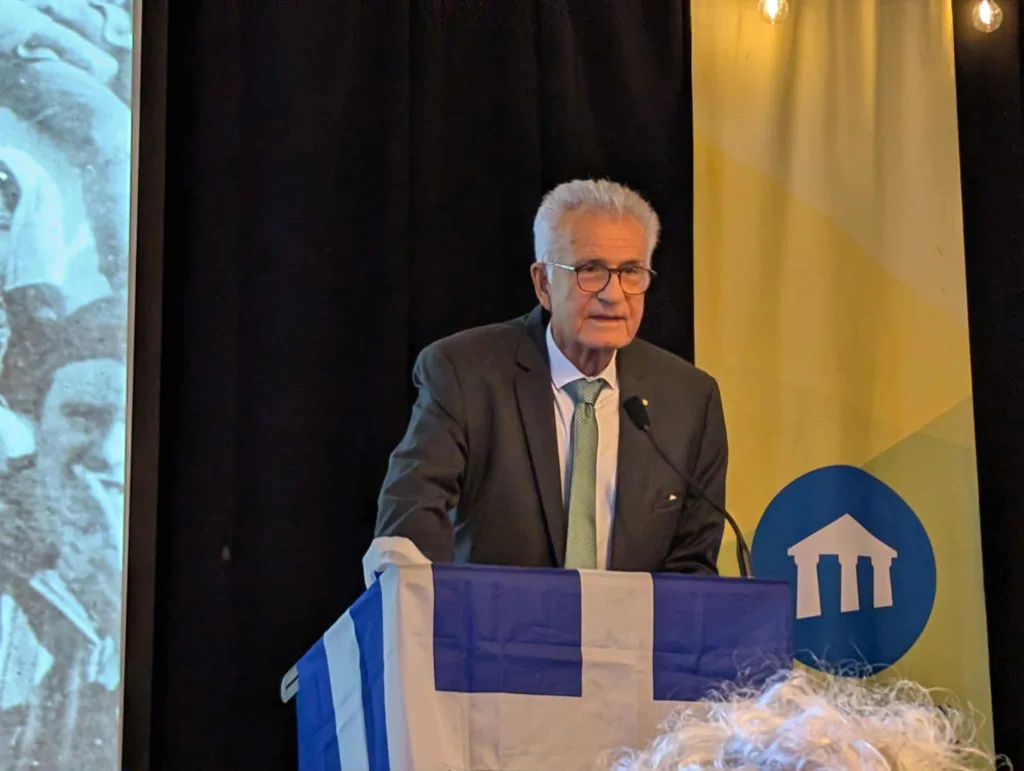
Master of Ceremonies Sophia Michaelidis framed Smyrna as “a jewel of the Eastern Mediterranean, cosmopolitan, literary, and culturally vibrant.”
“After 1922, its Greek and Christian populations were uprooted, brutalised, and erased from the map, but not from memory,” she said, citing eyewitnesses such as Ernest Hemingway and US Consul George Horton. “In a world still fractured by displacement and intolerance, remembering Smyrna is not nostalgia. It is an act of conscience.”
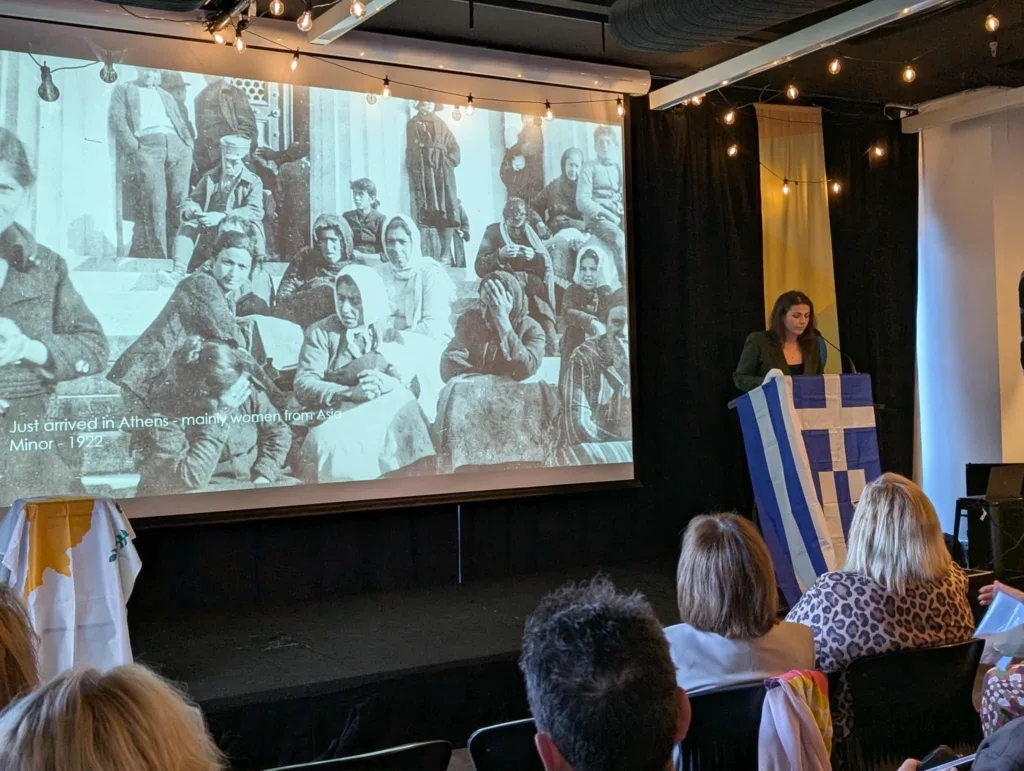
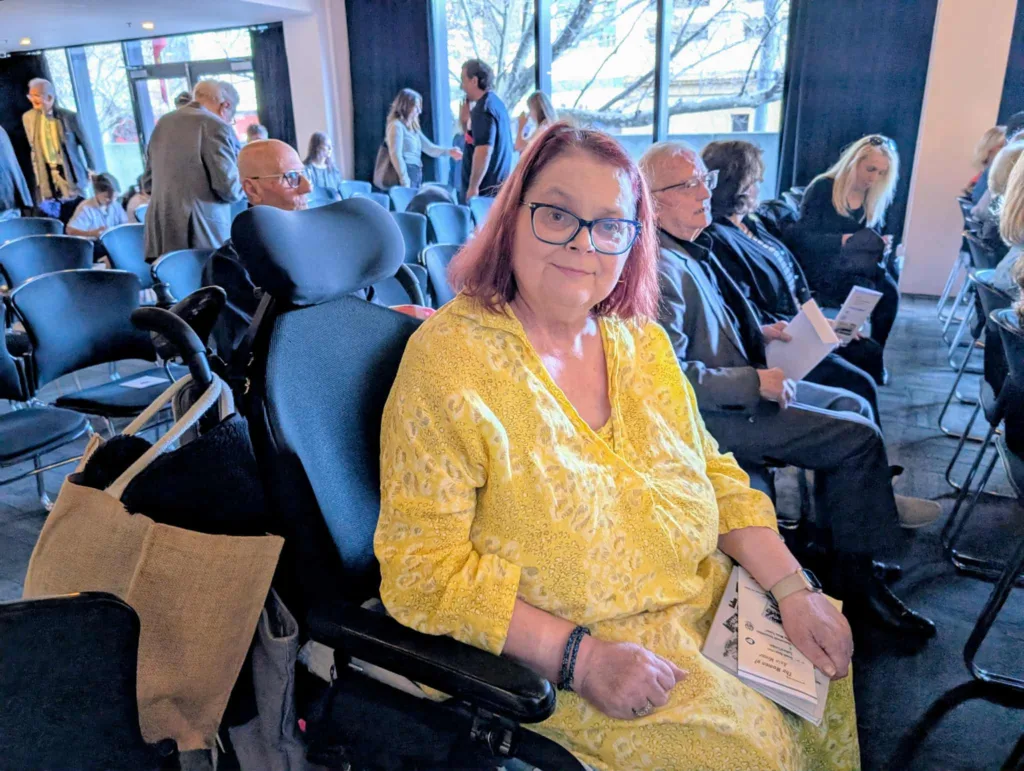
Audience member Sophie Arvanitou, with roots from Tenedos, told The Greek Herald how old family photos helped her reconnect with long-lost relatives in America, proof that Asia Minor memory continues to shape identity.
Zenon School principal Andrea Garibaldi stressed the importance of teaching these histories to younger generations: “The memory of Asia Minor means a lot to us because many of our families come from these regions. We teach the Catastrophe, the Cyprus invasion, the Greek Revolution, and the Pontic Genocide, they are all part of our identity. These students will be the torchbearers.”
One of them, 11-year-old Eleni, put it simply: “It was sad to learn about Smyrna being taken away. But I enjoy history, and I want to keep these stories alive.”
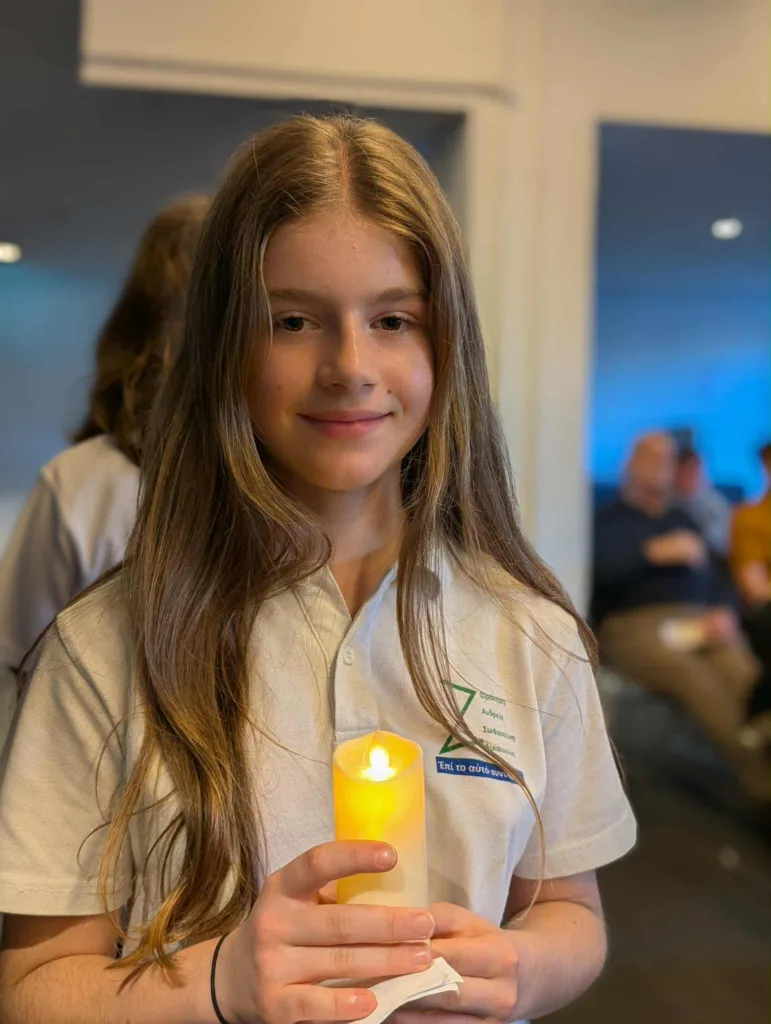
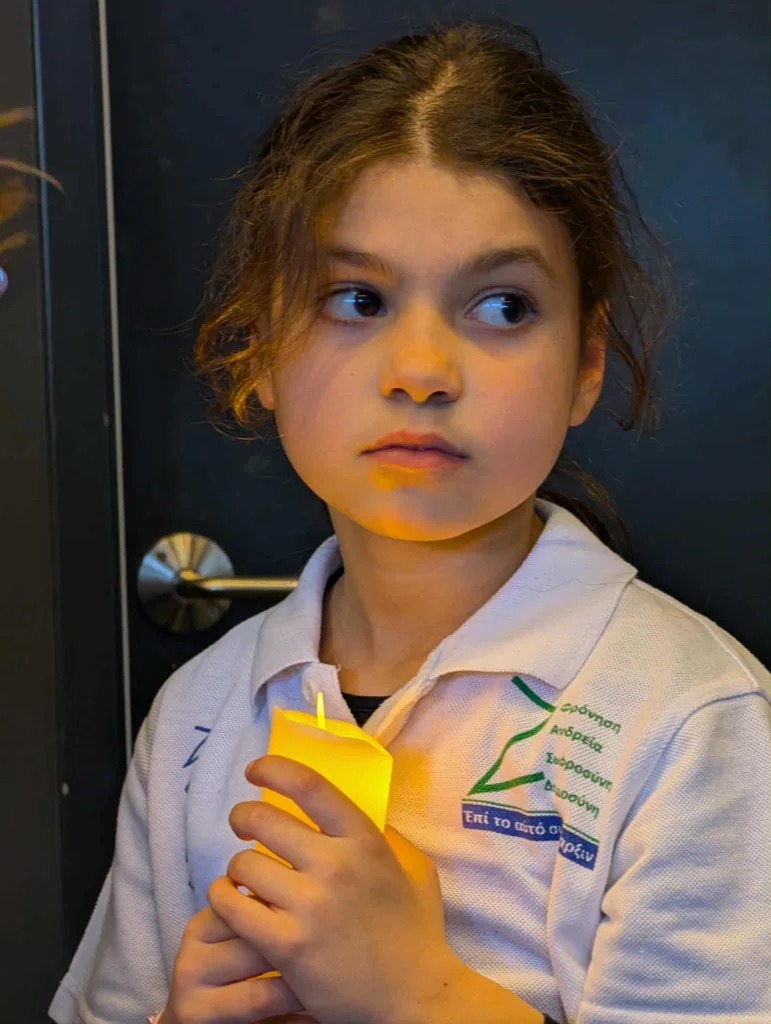
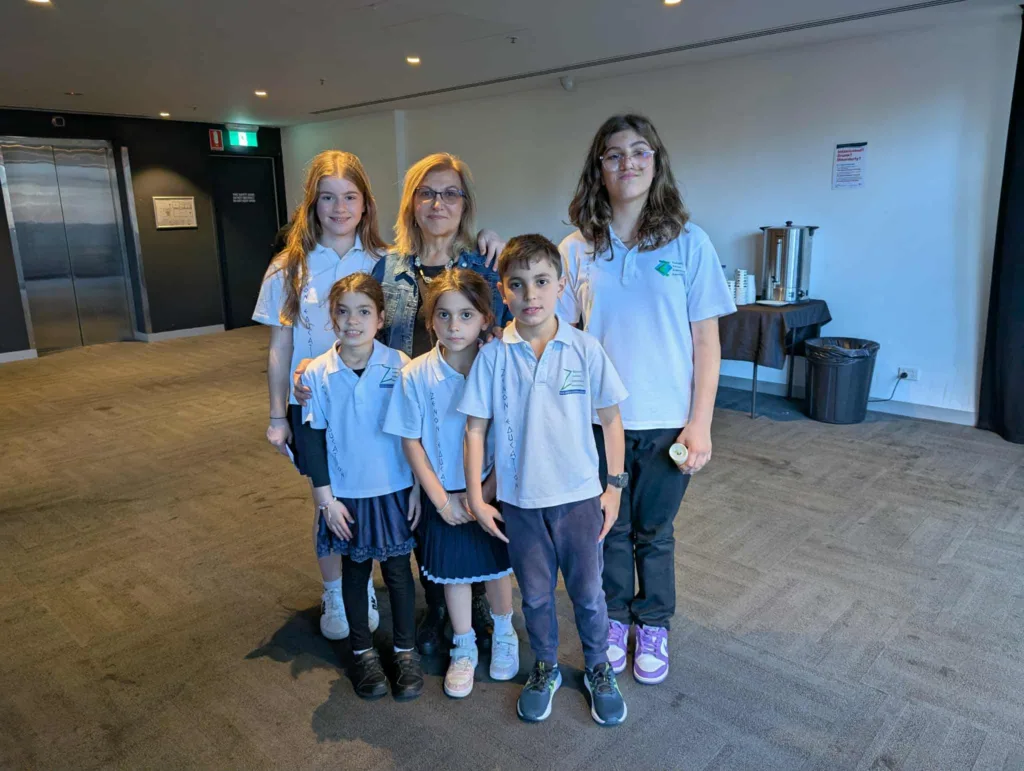
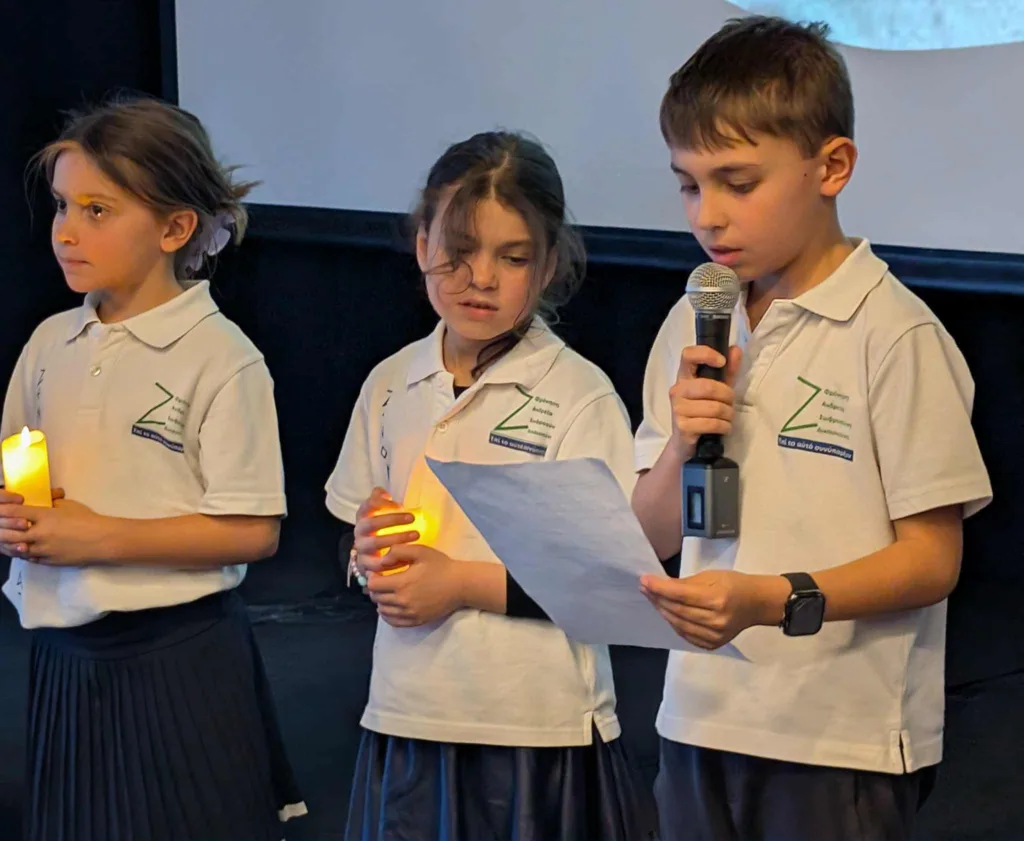
The program featured video tributes: writer Angeliki Gialidou Taligarou shared the story of Asimo, a Smyrna mother of three, while honouring literary voices such as Dido Sotiriou; another presentation by the late George Kanakaris enriched the historical record. Students from the Zenon School recited verses by George Seferis before the hall fell silent for a minute’s remembrance.
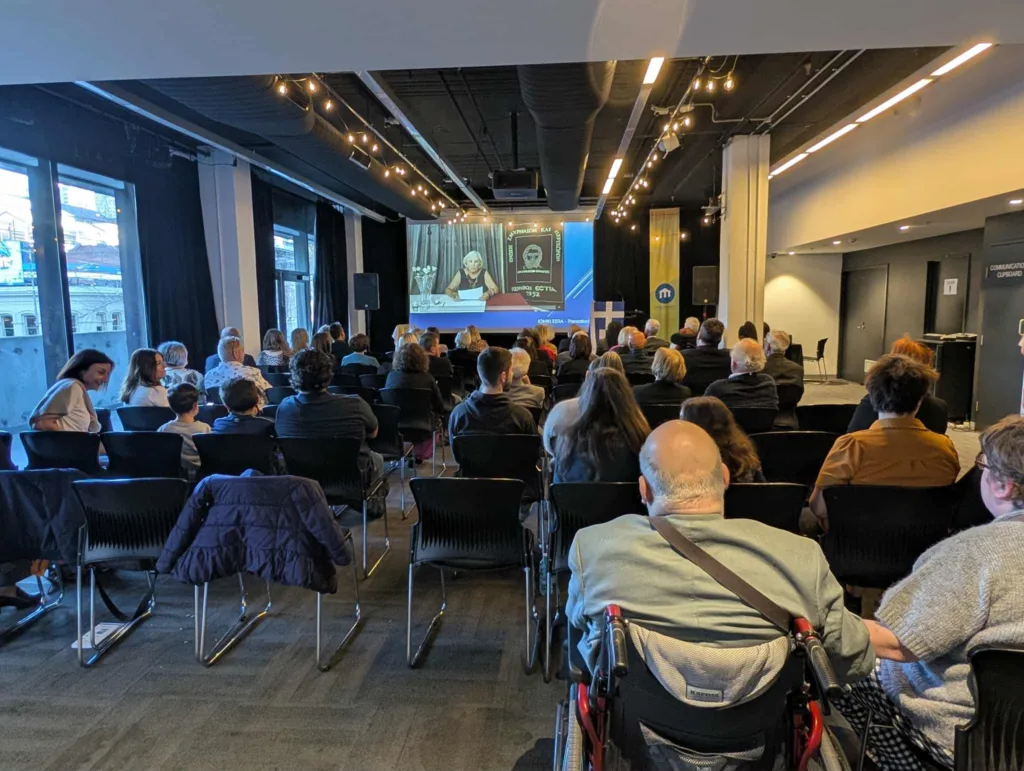
The afternoon closed not in despair but with renewed resolve: to honour the sacrifices of ancestors, safeguard memory, and recognise the extraordinary resilience of Asia Minor women.
As Alexopoulos reminded: “Lest we forget is not only for the Anzacs, but for our brave ancestors as well.”
